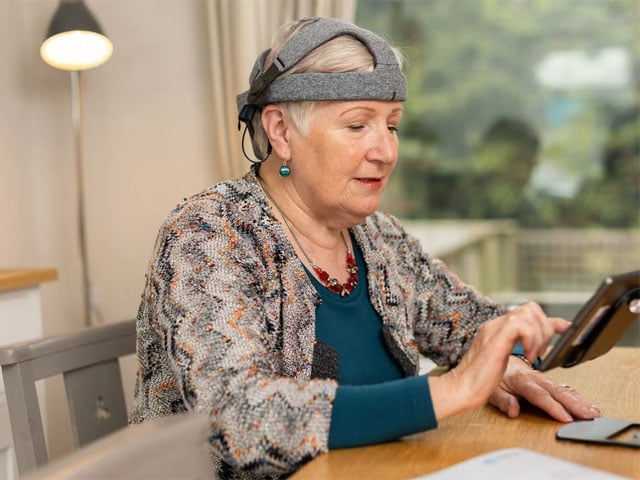London: Doctors have tested a new portable test for dementia and Alzheimer’s disease that could help diagnose the disease sooner.
Scientists testing a device called the Fastball EEG have been awarded £1.5 million by the National Institute for Health and Care Research. The funding is aimed at expanding trials of the test by researchers at the University of Bath and Bristol.
According to Dr. George Stothart and Dr. Liz Coulthard, dementia and Alzheimer’s are usually diagnosed years after the disease has progressed, and early diagnosis can lead people to early treatment, which can slow the rate of neurodegeneration.
In this test, patients are shown images on a screen and brain waves are measured. The patient wears an electroencephalogram (EEG) headset that is connected to a computer for analysis.
According to a previous study, this test is effective in diagnosing minor changes in brain waves. These changes occur when a person remembers the image.
According to the researchers, this pattern of brain waves changes when a person has dementia, which holds promise for early diagnosis of the disease.
Scientists are optimistic that in the future this test can help diagnose at least five years earlier, and in the future this period could be extended.
(function(d, s, id){
var js, fjs = d.getElementsByTagName(s)[0];
if (d.getElementById(id)) {return;}
js = d.createElement(s); js.id = id;
js.src = “//connect.facebook.net/en_US/sdk.js#xfbml=1&version=v2.3&appId=770767426360150”;
fjs.parentNode.insertBefore(js, fjs);
}(document, ‘script’, ‘facebook-jssdk’));
(function(d, s, id) {
var js, fjs = d.getElementsByTagName(s)[0];
if (d.getElementById(id)) return;
js = d.createElement(s); js.id = id;
js.src = “//connect.facebook.net/en_GB/sdk.js#xfbml=1&version=v2.7”;
fjs.parentNode.insertBefore(js, fjs);
}(document, ‘script’, ‘facebook-jssdk’));



